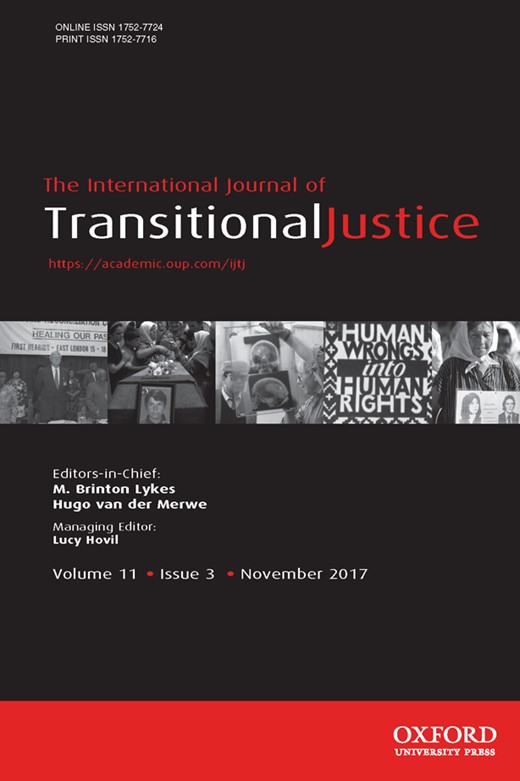-
Views
-
Cite
Cite
Kirsten Ainley, Evaluating the Evaluators: Transitional Justice and the Contest of Values, International Journal of Transitional Justice, Volume 11, Issue 3, November 2017, Pages 421–442, https://doi.org/10.1093/ijtj/ijx022
Close - Share Icon Share
ABSTRACT∞
Despite an increase in scholarly efforts to evaluate transitional justice (TJ) programmes, there is little agreement over what TJ is, what effects it could be expected to have or how TJ mechanisms should be judged. This article contributes to the literature on TJ evaluation by showing how differences in understanding of the nature and value of the ‘justice’ in TJ affect what is evaluated and how findings are interpreted. The article parses the values inherent in TJ evaluations (retributive, restorative and transformative justice, valuable for intrinsic or instrumental reasons) in order to think through the ways in which different value orientations lead to different appraisals. A broad sample of literature on the TJ programme in Sierra Leone is analyzed according to the value orientations it tends towards. The analysis finds that evaluations of Sierra Leonean TJ can be found displaying each of the six value orientations, with no agreement about the success of the TJ programme from within orientations, let alone across them. Additionally, it is argued that scholars and researchers are rarely explicit about their orientations, and there is insufficient consideration of the political implications of different value positions for prescriptions for future TJ programmes.




Comments